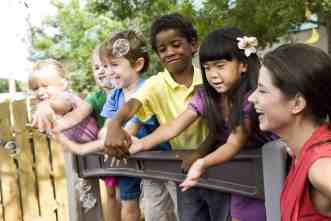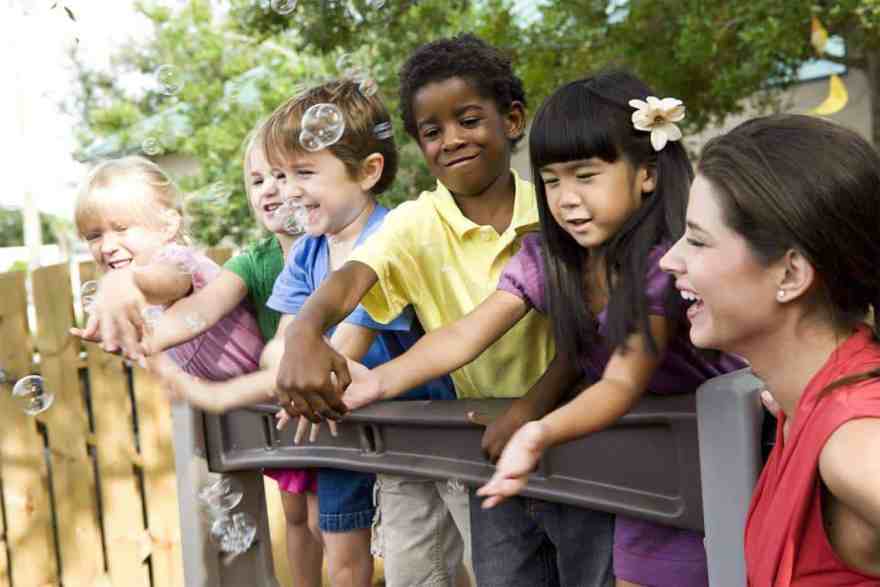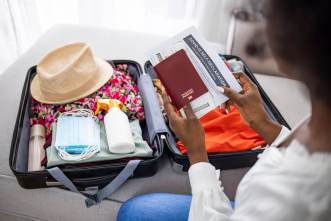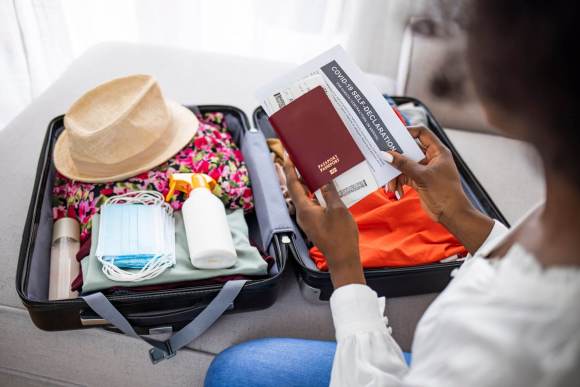The term ‘third culture kid’ has become associated with expatriate children thanks to the coining of the phrase by sociologist Ruth Hill Useem.
Third culture kids – what are they?
The term refers to children who have spent a significant period of their childhood or adolescence living in a culture other than their own.
Once a demographic has been identified and ‘labelled’ like this, it seems it’s far easier for research to be centred around it, so if you Google the term ‘third culture kids’ you’ll find no end of reports and studies about the effects of living abroad on children.
However, rather than taking a wholly academic approach to the study, we thought we’d draw on our own experiences and those of our readers and bring you the top 10 ways that living abroad will give your children a better start in life.
Many parents worry that living abroad even on a year-long sabbatical could damage their child’s education, stunt their development and harm their chances of ongoing social interaction within their peer groups – however, as we will now show, living abroad can actually benefit your child in so many incredibly deep and important ways, you’ll be planning your family’s relocation before the day is out!
Your child will be able to integrate more easily
Do you want your child’s first awkward experience of being a stranger in amongst a sea of strange faces to be at age 18 when they leave home for the first time to go to college or university – or would you rather your child was comfortable speaking to and being around all sorts of people from a very young age?
When you move abroad your entire family will be absolutely surrounded by strangers from the word go and your child, alongside its parents, will learn how to communicate, adapt to fit and integrate seamlessly. This is an invaluable lesson your child will learn by rote and by your side – in such a non-confrontational or awkward way that going forward in life integration and adaptation will never pose a problem to your child.
Your child will have a greater sense of the world
We received a story from one reader about how her daughter became aware of the true reality of poverty when they moved to live in a so-called third world country.
Back home her daughter had been involved in fundraising through her school for various charities supporting people in poorer nations abroad, she had donated old clothes and toys for people in a less fortunate position because she had been told to, but when she and her family were approached on a near-daily basis by begging children, it was only then that she understood the depth of the real differences between herself and the lifestyle she enjoyed and others in the world.
Our reader explained that this gave her daughter a very focused approach to generally improving the whole world!
From encouraging everyone at home and at school to recycle to pestering her parents to do more in their new community to help – this little girl gained a much truer understanding of the world and the imbalances that exist. In her parents’ opinion she adopted this understanding naturally and rather than overly worrying about it, she understood that she was in a position to help.
Your child will enjoy a prolonging of their childlike sense of wonder
Back home everyday tasks become chores and we all become blind to the world around us to a degree, and immune to new experiences within our familiar world – moving abroad is a massive wake up for all of us.
For adults it means we develop a new sense of wonder, appreciation and of adventure – and for our children, it means that they get to extend what is arguably the most positive aspect of childhood, and that is having a sense of wonder, excitement and appreciation of the world!
New sights, smells, tastes and experiences will constantly delight – what’s more, it will mean our children passively but positively learn, learn, learn. What could be a better experience for your child?
Your child is more likely to become bi or even multilingual
Whilst English is the international business language and there are international schools in almost every nation on earth where English is the language of study, if you move abroad you are much more likely to introduce your child to another language.
There is a whole another argument about whether you integrate your child fully by putting them in a local school or whether you send them to an international school – but if you do decide to educate them locally you will be shocked at how quickly and how well they pick up the local lingo!
It certainly helps if you already have an understanding of the language and if you can introduce them to it before you go – and it will also help if you’re learning the language alongside them.
But children – especially those below the age of 10 – are like sponges and they will be competent in communicating in no time, and fluent months before you are. This will help your child develop linguistic skills, develop specific areas of their brain, it will help them to understand more about the concept of communication – and it will give them exceptionally valuable skills for life.
Your child is more likely to gain a higher level of educational qualification
An in-depth study of so-called ‘adult third culture kids’ (i.e., adults who grew up as children abroad) completed in America revealed the following findings: “Only 21 percent of the American population (24 percent of men and 18 percent of women) have graduated from a four-year college. In sharp contrast, 81 percent of the adult TCKs [third culture kids] have earned at least a bachelor’s degree (87 percent of the men, 76 percent of the women). Half of this number have gone on to earn master’s degrees and doctorates.” What more proof do you need that living abroad can give your child a better all-round education?
Your child will become more mature, more accepting and understanding
Just by the very nature of your life as you relocate, adapt to new surroundings, take on new challenges, meet new people and overcome all sorts of obstacles your child will learn to be more mature, more accepting of their life and the wider world, and more understanding of people and the way the world works. This will be an invaluable education in itself and it will help your child become a well-rounded individual.
You and your child will enjoy a closer support bond
When you relocate, initially your child will not necessarily have close friends in the new nation and will be more reliant on parents and siblings for support and for ‘entertainment’ and social interaction – this can have a very positive effect on the family bond. As you go forward with your new life abroad you will all be experiencing new things together, and these shared experiences will help further cement this bond.
Many expats relocate in a bid to improve their quality of life, with expat parents often stating that they want to have more time with their children and that is a driving force behind them moving abroad. Surveys like the Expat Explorer one from HSBC and the Quality of Life Index from NatWest all show that the vast majority of expatriates believe that moving abroad has had a positive effect on their children and on family life in general.
Your child will develop superior problem-solving abilities
Academic research shows that expatriate managers have superior problem-solving abilities, that they are more effective communicators and they are better able to integrate into a new setting – the same will be absolutely true for your expatriate child.
Because they face new challenges when they move abroad, they have to adapt, change and integrate, learn a new language and find new and acceptable ways of communication and behaviour they will learn from a very early age how to problem solve in all aspects of their life.
Your child will enjoy many new experiences
As mentioned above, back home we become desensitised to new experiences whether they are positive or negative – however by moving abroad and immersing oneself in a completely new and ‘alien’ environment, everything is new and everything is a positive experience in terms of teaching and learning from your child’s point of view.
In a new nation, a new culture and a new climate you will be more likely to come across many new possibilities in terms of experiences your child can enjoy – from new sports to new outdoor activities, from new arts events to new religious traditions. Your child will have so much more to enjoy.
Your child will become a cultural chameleon
By learning to adapt and live in a new nation and amongst a new people, by taking on a new language, perhaps learning to live within a new religious tradition and certainly within a different geographic setting your child will see that the world is different everywhere you go.
This will make them much more open to adopting new cultures and immersing themselves in new nations whenever they travel – as a result, they will become cultural chameleons taking on the best bits of any nation they move to, live in, study in or visit.
We understand parents’ worries about relocating with children, about uprooting a happy and settled child and about stressing children with a move abroad – however, throughout our children’s lives, they will be exposed to change whether we like it or not. Moving abroad is a wholly positive change, which if managed well can represent nothing more than opportunity and adventure for your children.
The benefits of relocation and living overseas, of learning a new language and adopting a new culture, of making new friends and having new experiences far outweigh the negatives in the opinions of everyone at Expatra and in the opinions of the majority of the readers who have contacted us about their own experiences of living overseas with children.
You might find useful
- The Essential Guide To Cost-Effective International Removals – how to save money and time when organising your overseas removals;
- Overcoming The Main Challenges Of Living Abroad – how to adapt to your new country and make it home;














